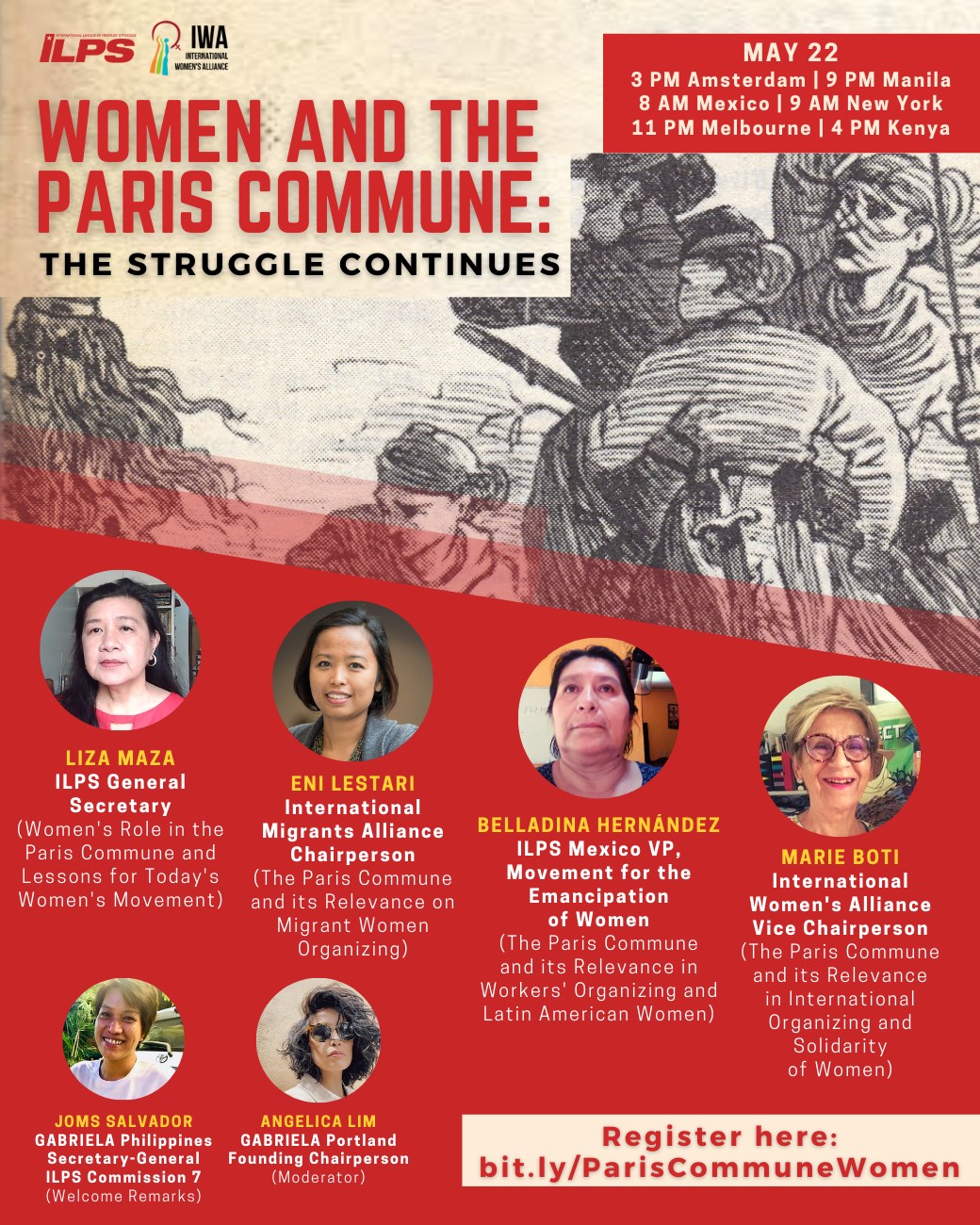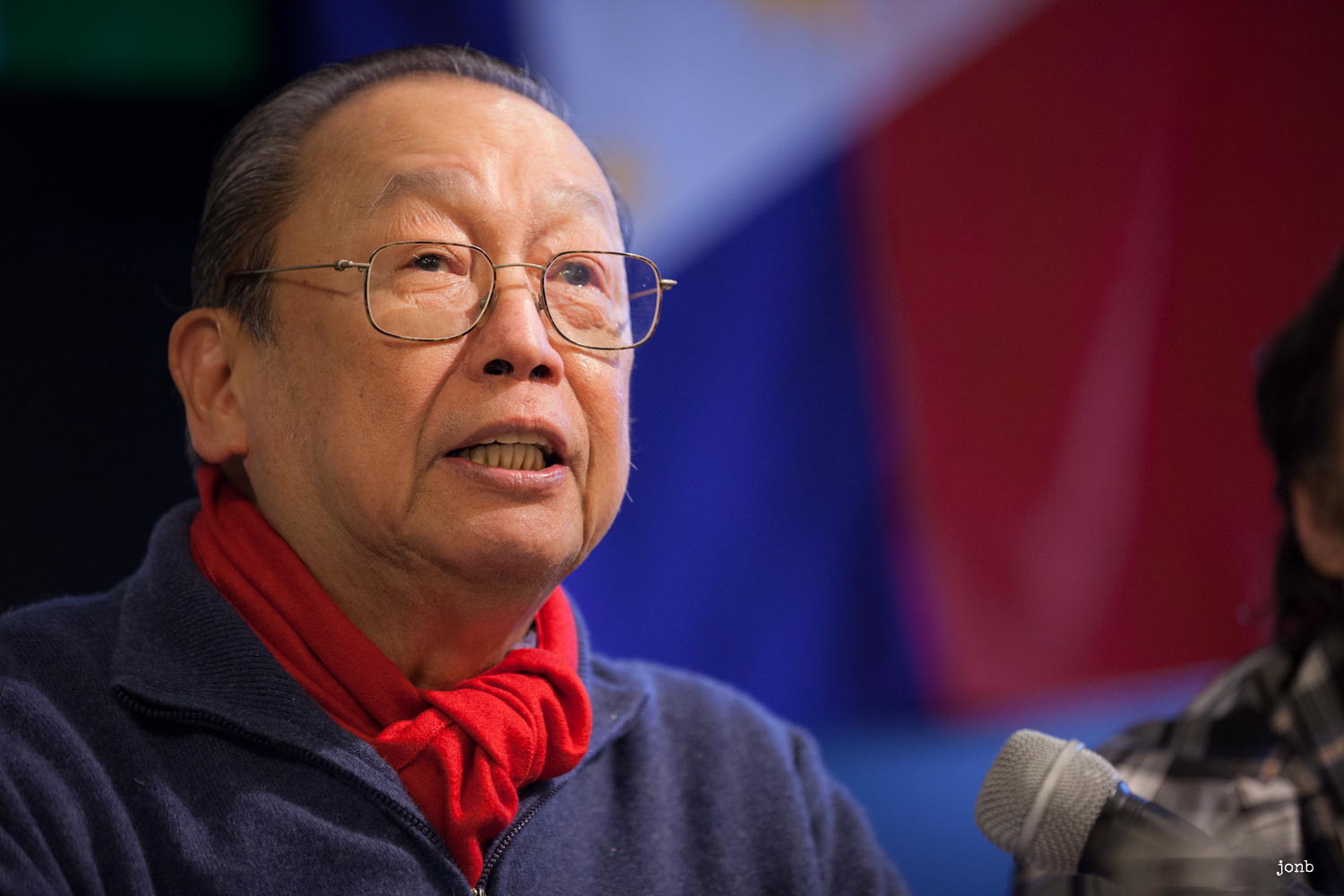De Maegd Frans – 18 March 2021
The Paris Commune started on the eighteenth of March, eighteen hundred and seventy-one.
Although the Paris Commune lasted only seventy-two days, it was the first successful proletarian revolution, in which the working class destroyed the old bourgeois state power and established the dictatorship of the proletariat. Frederic Engels explicitly calls the Commune; the dictatorship of the proletariat, although all so-called “Marxists” will conceal this in all languages.
Already during the Paris Commune, when its defeat was certain at the beginning of May, Karl Marx in his work “Civil War in France” points out the historical importance of the Commune for the communists of yesterday, today and tomorrow.
Karl Marx, as the president of the First International, writes: “Even if the Commune is crushed, it only means a postponement of the struggle”.
To prepare for revolution and Soviet power, Lenin wrote in the summer of nineteen hundred and seventeen (1917), “State and Revolution”, in which he draws on the experience of the Paris Commune. The Bolsheviks will adopt all the positive of the Commune, consciously avoiding all the negative.
The Paris Commune was decisive for the Soviet power.
The Paris Commune arose from the first modern Franco-German war in 1870 and 1871. To prevent the unification of Germany under Bismarck, Napoleon III started a war against Prussia and Bavaria in July eighteen hundred and seventy (1870).
But Napoleon was defeated on the Franco-German border at Sedan. The people of Paris rebelled and proclaimed the Third Republic. The new government of national defense” was led by the bourgeoisie. Instead of defense, it prepared the capitulation (just as the French government did in May nineteen hundred and forty (1940) when it invaded Nazi Germany).
From September eighteen hundred and seventy (1870), Paris was completely surrounded by the German army in order to force Paris to capitulate by famine and bombing. But the Parisians held out. The rich had long fled the city, as had the government.
The workers had the weapons. There were two hundred (200) battalions totaling some one hundred thousand (100,000) national guards. They had bought their own guns to defend the city.
But on the twenty-eighth of February, the Thiers government signed the capitulation with terrible consequences for France and the French people: the loss of Alsace-Lorraine, the payment of billions in war taxes. The Parisians had to surrender their weapons. Which they refused to do.
On the eighteenth of March, government troops sneaked into Paris to drag away the cannons of the Communards on the Butte Monmartre, where now stands the horrible church “Sacré Coeur”. It failed! Paris revolts and by the evening the rebels have occupied the City Hall and the National Guard takes power.
On the twenty-sixth of March there are elections. Of the eighty-six (86) elected, thirty (30) are members of the International, but the Marxists among them are in the minority.
The Commune takes decisive political decisions
One of the first measures is the abolition of the standing army, which is replaced by the popular militia of the National Guard.
The members of the Commune are and always will be expelled. They are mostly workers or recognized representatives of the working class. The Commune would not be a parliamentary but a working body, at the same time executive and legislative. The members of the Commune and the public service had to work at a working class wage.”
By abolishing the two most expensive expenses of the former state, the army and the bureaucracy, and by giving all power to the people, the Commune becomes a cheap government. Many tasks formerly performed by civil servants are taken over by the workers themselves usually in their spare time.
The Commune proclaimed the separation of church and state.
The Commune also has an international character. A Hungarian named Frankel becomes Commissioner of Labour, and Polish generals Dombrowski and Wroblewski lead the military defense of Paris.
The Commune also takes important social measures, including:
– Abandoned workshops are transformed into cooperatives, under workers’ control.
– A minimum wage is established
– Lawsuits and legal aid become free.
– Education becomes free. With much attention to the education of girls
– Pension for the widows and orphans of the war victims.
– Establishment of food banks and canteens for the needy.
– Abolition of gambling and street prostitution.
– The guillotine was burned on 6 April
But the Commune failed to expropriate the Banque de France (it continued to finance the Thiers government) and failed to disband the Thiers government at Versailles. This was the condition for the victory of the revolution in the whole of France.
From April onwards, the Thiers government prepares the counter-attack with the help of the German settlers. The latter releases one hundred thousand 100,000 prisoners to reinforce the government’s army.
Paris was again surrounded. In the north by the Germans, in the south by the government troops.
On 21 May, government troops succeeded in penetrating Paris. There followed “a bloody week” during which Paris was recaptured. The repression is terrible. Thirty thousand (30,000) Parisians, including women and children, lost their lives in the fighting. Some forty-five thousand (45,000) were sentenced, part of whom were deported to New Caledonia. One hundred thousand (100,000) Parisians fled to London where they were taken in by the International, Marx and his daughters.
The terrible defeat was a great trauma for the international labour movement and deeply divided the International.
The right-wing reformist movement said: “It was a failure of a beautiful dream. Never again. We must choose another path.”
The Marxist and revolutionary current said, “it was a heroic attempt, better next time. We must choose the same road”.
And so it happened in October nineteen hundred seventeen (1917)
Long live the Commune!
Long live the socialist revolution and the dictatorship of the proletariat!


